As one of the Human-Animal Bond in Colorado – HABIC dog teams certified during the Covid pandemic, Abby Schwab and her mini Doodle Mischa bring exceptional dedication to their work with patients at The Denver Hospice.
Story by Rebecca Rowlison
“Before I seriously considered animal therapy, many people would meet Mischa and say she should be a therapy dog, or ask if she is one,” said HABIC volunteer Abby Schwab about her partner, a seven-year old mini Golden Doodle.
When Mischa was adopted at just 12 weeks, Schwab had already been serving as a volunteer at The Denver Hospice, where she first learned about HABIC. She was excited about what Animal-Assisted Interventions offered to communities. “The community programs, research, and education are incredibly enriching and valuable.”
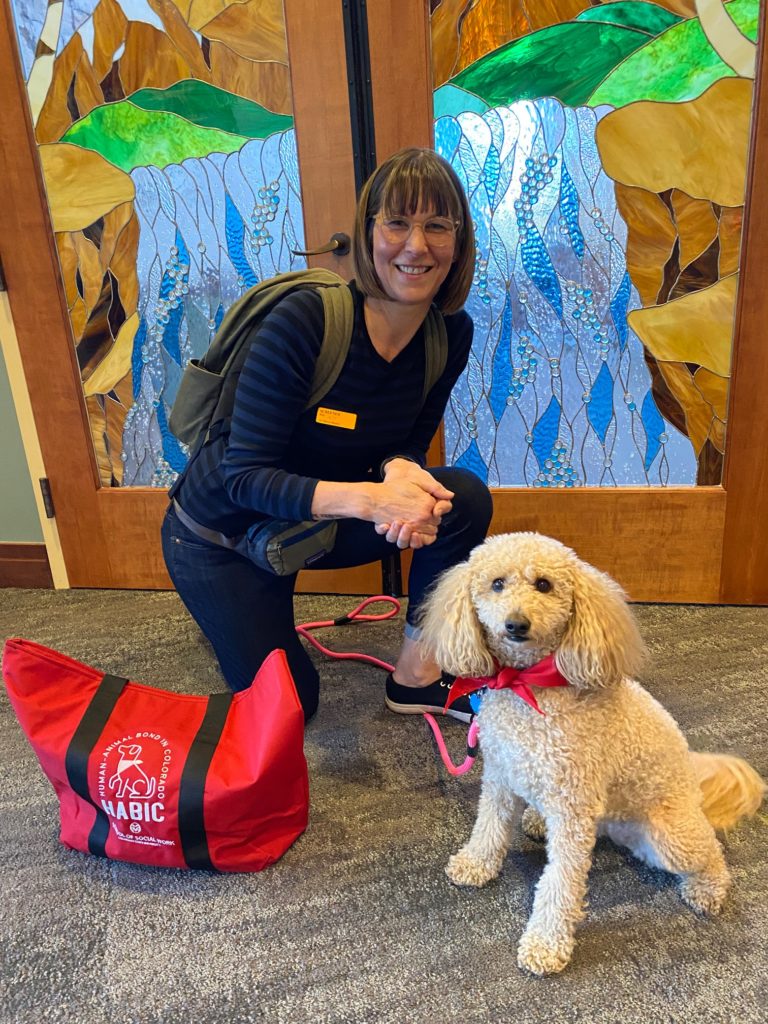
Dedication from the start
Schwab began HABIC’s therapy dog training program during Covid restrictions. “I was a little unsure about how a Zoom training would go,” she said, “but [HABIC Animal Trainer and Volunteer Coordinator] Kate Miller is simply amazing at what she does.”
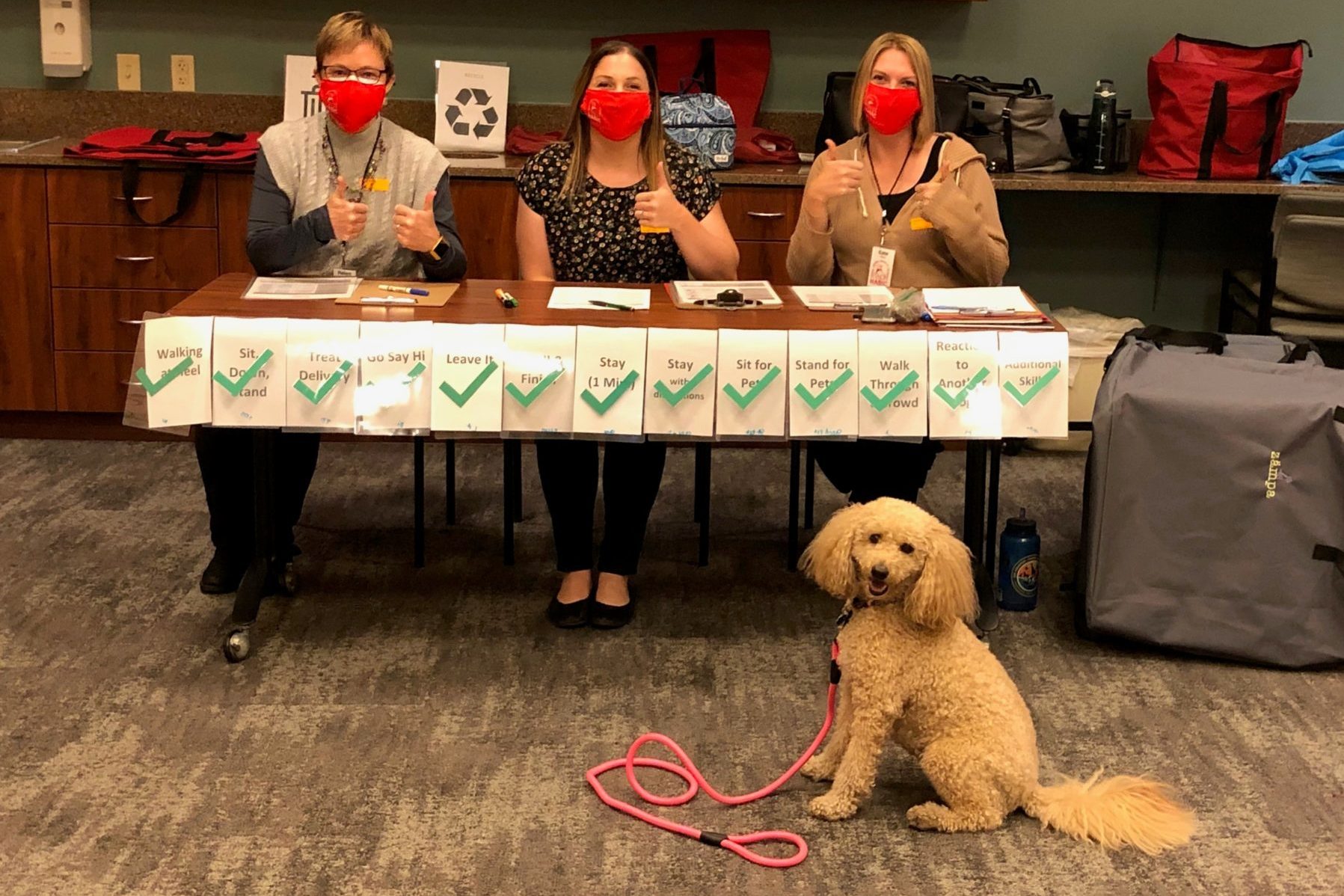
Today, HABIC has resumed in-person classes for new volunteers, but Schwab felt supported through the pandemic-era process by Miller. “I was continuously impressed with her skill, passion for her work, and kindness,” Schwab said, “not to mention plenty of patience and good humor—especially for the humans! I was amazed at how well it worked.”
Schwab now has been able to have Mischa join her in volunteering for The Denver Hospice. “I look forward to bringing Mischa to meet with a variety of people: patients, their friends and family, as well as the wonderful staff, including nursing, administrative, and other hospice volunteers who are offering different services.”
Making a difference for hospice patients
One of Schwab’s favorite memories happened just after being certified as a HABIC team. “My first visit with Mischa was a tour of the inpatient care center with the always-supportive Volunteer Coordinator Kristen Coleman. She is a gift!”
“Up to that point, my volunteering had been in patients’ residences,” Schwab said. “[Coleman] was explaining the process of signing in, which at the time included a Covid test, so Mischa and I were taking a lot in. She asked if I wanted to go visit a patient and I—a little nervously—said yes.”
“As soon as we entered the room, the patient, a woman about my age, clearly responded to Mischa—sitting up and becoming more animated. She patted her bed, and Mischa responded by jumping right up and making herself comfortable,” Schwab said. “The expression of delight was unmistakable.”
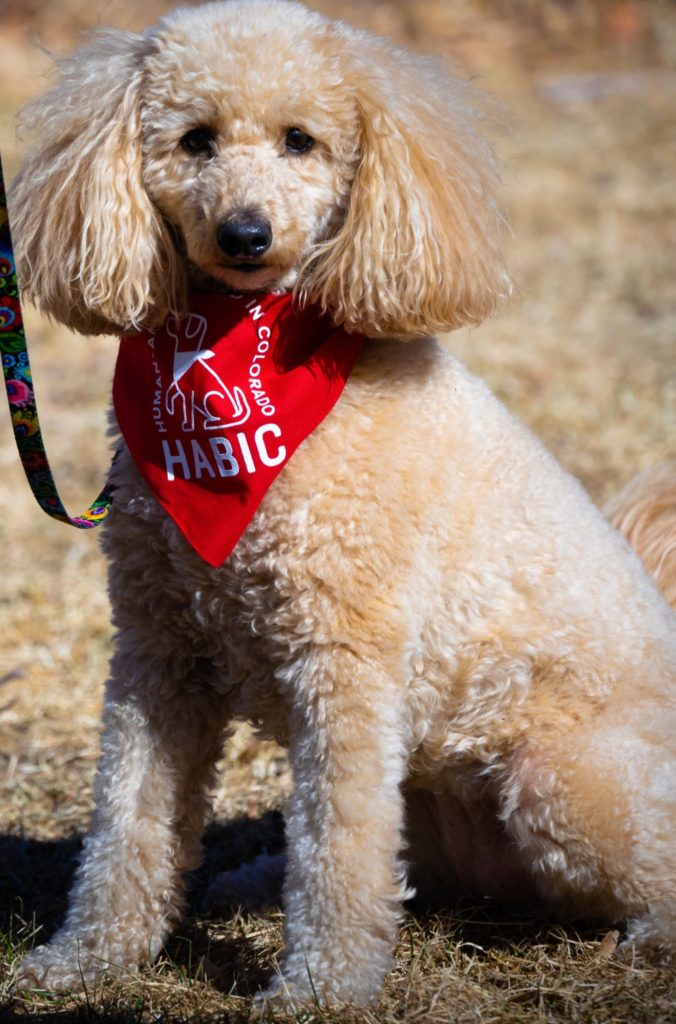
Schwab quickly checked in to make sure Mischa was welcome on the bed. “Well, this bed jumping thing was not part of the training, so I was looking to Kristen, who assured me it was all good…I later learned the patient had passed the next day.”
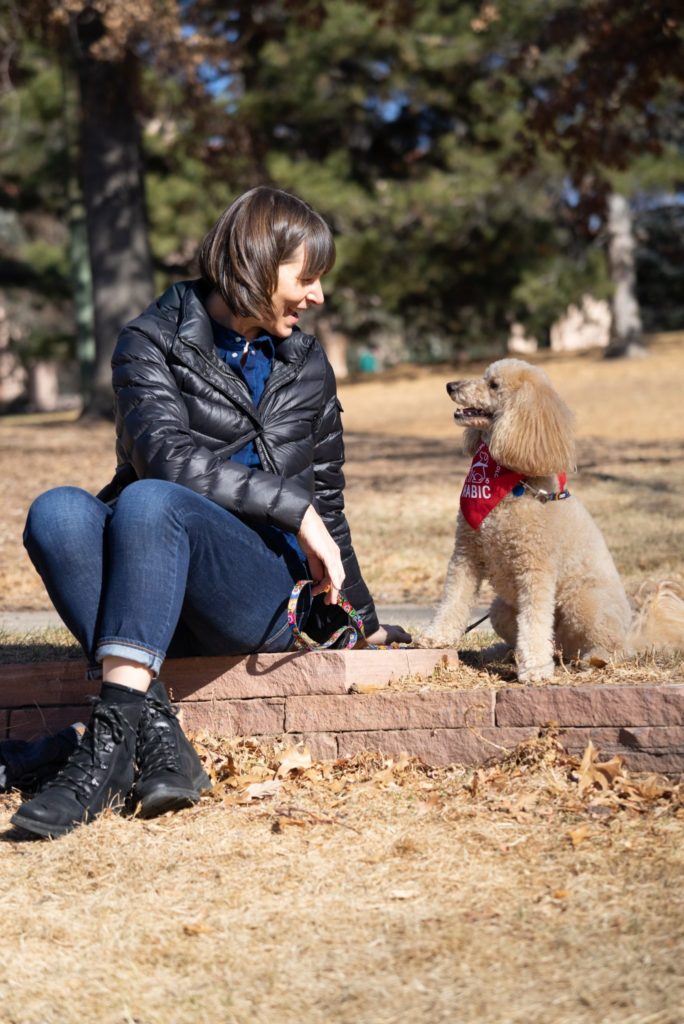
“Spreading smiles” at The Denver Hospice
Staying involved is very important to Schwab and Mischa. “When Mischa and I walk into The Denver Hospice, we both have the same attitude of arriving without a set idea of whose path we will cross.”
“Sometimes we spend more time with patients, or only one or two because others are asleep or receiving some kind of care,” Schwab said. “We might be in the visitors’ room for a while, or pausing in a hall for a little meet and greet. We are happy to come for whomever would like a visit.”
“I say to Mischa, ‘Are you ready to spread some smiles?’ She always is.”
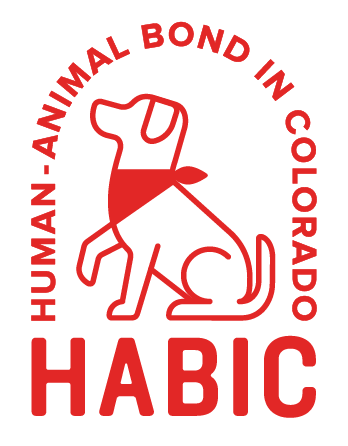 About Human-Animal Bond in Colorado
About Human-Animal Bond in Colorado
Founded in 1993, Human-Animal Bond in Colorado (HABIC) is a center in the School of Social Work, part of CSU’s College of Health and Human Sciences. HABIC’s mission is to improve the quality of life for people of all ages through the therapeutic benefits of companion animals, with particular focus in the areas of community outreach, teaching, and research.